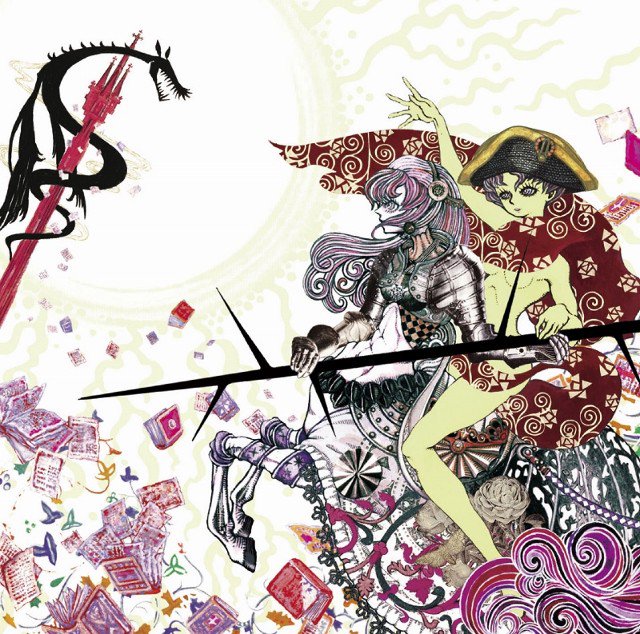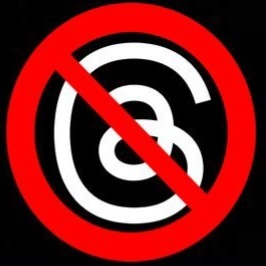Playing Pool Of Radiance got me learning the ins and outs of 2nd edition AD&D and I came to the realization today that I prefer games with a magic points or mana system. Probably because I grew up with JRPGs which exclusively deal with MP over spell slots. Don’t get me wrong, D&D is great, but it’s such a pain when you get into battle and you realize you forgot to memorize Detect Magic and now you have a bunch of potential good loot.
I think most people prefer magic points. Spell slots are just kind of a thing that D&D happened to have. If D&D wasn’t such a cultural force in defining what an RPG even is, spell slots would be a weird quirky thing that one RPG has and everyone is like “huh that’s kind of interesting” and think of D&D as “that one with the weird spell slots.”
Not that spell slots are meritless. They’re weird and people want magic to be weird, they give you a reason to use low-level spells, and they somewhat encourage using spells flexibly (but they also encourage over-relying on the most flexible possible spells; just memorize five copies of Polymorph). But yeah, MP is the most default resource mechanic you can get.
I like vancian magic. It makes wizardry weird and arcane, requires strategic thinking and preparation. Your vast cosmic power comes with weird rules and restrictions that don’t make any sense because it’s magic. Pathfinder did a lot of stuff to take the edges off of it with cantrips and what not and I think that was a good choice.
Agreed, it works better in fiction though. The way it’s described in Tales of a Dying Earth really sells the notion that magic is weird and powerful while following rules that prevent it fully being under our control.
Totes fair. It’s always been a weird system.
Agreed.
Broke: spell slots
Also broke: mana
Bespoke: magic is free and flexible but also extraordinarily dangerous to the caster and everyone around them
Bespoke: magic is free and flexible but also extraordinarily dangerous to the caster and everyone around them
This works fine for books but I hate it for TTRPGs. Anytime an RPG wants to punish you for using the cool powers it has provided I roll my eyes. There are a few settings where this works well, Unknown Armies comes to mind, but in general if the RPG says “Here are some cool powers but be careful not to use them!” I say OK and then close the book and reach for a different RPG.
For clarity, the game I had in mind there is Magicka. You’re not directly punished just for using magic, but all spells carry risk through something like area effects, ricochet, trapping yourself behind obstacles you place, mis-typing input combos, idiosyncratic targeting mechanisms, trying to cast electric/fire magic while you’re soaked with water/oil, etc.
Trying to hit the lich with a thunderbolt? Congratulations, you just exploded your party’s archer because you forgot they were at the highest elevation of any character in range.
Also for clarity, I don’t think this system is appropriate for a ttrpg. It really needs time constraints to work properly, or harder-to-avoid risks that start to verge into “direct punishment” territory, which itself has a high risk of just not being fun. I think the latter option is generally best saved for the most devastating (or just eldritch/necromantic) spells. You can summon an army of beholders, but the material component is your character’s own eyes.
Magic is an input combo system where there’s only a handful of basic spells, but you can literally “spell” bigger spells using those basics in certain orders
Spell slots but it’s a tetris inventory
Spell fatigue system where it’s technically unlimited but you accumulate temporary penalties/injuries
Spell slots but it’s a tetris inventory
I’m actually kinda liking this dumb idea, imagine if every level you could increase the X or Y dimension of your inventory, so if you wanted to eventually cast some W I D E spells you’d have to focus on columns and give up the ability to cast TALL spells that need lots of rows to fit. Or you could forgo both and just go for the maximum-area square full of generic moderately-shaped spells.
Sounds like you should play Backpack Hero.
I realized halfway through describing this that I was just describing Jump Super Stars lmao
Spell slots but it’s a tetris inventory
Give me the GEP Spell

Noita: All 3
:spaceman-two-buttons: :mina-sweating:
My friend has derailed 3 investigative encounters in Dark Heresy by causing psychic phenomenon with his mutant psyker powers. The power only conferred a buff to the next test.
I like mana/mp systems. For long thing, it bends easier to mechanics around reducing or increasing spell costs for different effects. I also prefer the idea of similarly tiered spells costing different amounts of magical energy.
I dont call it mana, has too many weird real world religions connotations.
True. It’s strange to think about how it slipped into a placeholder for magic points
Agreed. Spell slots are a weird holdover from early D&D, and they have a lot of negative knock-on effects.
For instance, a system where characters have abilities (like magic spells or superman martial feats) that can be powered by a resource pool (like mana or willpower or whatever) would be a lot easier to fix the martial/caster asymmetry problems that continue to plague D&D.
On the other hand, there’s something interesting that some OSR games like Knave and Cairn do where all spells are magic items (like a magic tome) that uses up an inventory slot. Rather than having magic as a class ability, plays have to chose to use their inventory on either weapons/armor, magic spells, or other useful tools/gadgets that leads to character specialization.
Spell slots suck, prepared spells suck even harder.
Honestly both are flawed though spell slots are the more flawed one. (Prepared) spell slots have some merits but are used wrong: they should be more an abstraction of material accessories than the bread and butter of a caster that’s expected to use their abilities frequently. Pathfinder 2e does spell slots right with its shit like daily free alchemical preparations, daily free talismans, etc even though it also does it wrong by doing it the D&D way too.
The issue with magic points is more a matter of implementation imo. It works better to have a flexible and interactive resource like that, though I think its most common implementation is bit too “pay X magic money for spell, you get Y magic money per rest (and maybe can drink magic money juice to refill it)” when it should be either a sort of short term limiter (you can do X amount per scene) or a sort of flexible tank that gets drained erratically when casting based on the strength of what’s being done (so small things can be outright free, while big things can burn you out for the time being, basically). Shadowrun’s approach of just treating magic as something that’s actively hurting you and which needs to be endured is also good.
There’s also something to be said for the way some systems merge magic and preternatural mundane effects into just different flavors of action, making them more narrative choices than strict mechanical ones. Sort of like how ICON handles its narrative play, where an action is ambiguously magical or mundane and how exactly it’s done depends on how the character narratively works (one example being traversing an obstacle, which could be a matter of a character successfully teleporting across it or some feet of agility, with both explanations being the same effect and the same roll).
Your suggestion remind me of the “reverse mana” system from the various Ogre and Final Fantasy Tactics games - start with 0 mana and gain some each turn, so you can keep casting simpler magics, or save up for a more powerful spell.
I think spell slots are really neat when you take advantage of them like 3.5/Pathfinder did. Each slot was prepared separately, could be left unprepared and then prepared out of combat to adapt to the day, and had lots of metamagic options to make use of different level slots.
But by the time of 5e, slots don’t seem to have any purpose beyond lowering caster flexibility. When we were playing we ruled spontaneous casters could use spell points instead of slots to give them an edge up on the prepared ones.
3.0/3.5/Pathfinder also used Power Points for its psionics instead of slots, and that worked very well. Shame 5e doesn’t have psionics.
I really don’t like 5e on any level. The mechanics are so stripped down it leads to problems for the DM trying to tell an interesting story. The actual rulebooks and materials are a terribly laid out mess that just hurts to try to work with.
Meanwhile Pathfinder 2e is straight up elegant in how it’s mechanics work, and I have never in my life encountered a rule book so brilliantly laid out for ease of use at the table.
I didn’t want to pick a fight with 5e people, but we found it unsalvagable and moved on. Anything kind of campaign we could run in it would work better in some other system we know.
No one I know has played Pathfinder 2e since the playtest, but the low success rates and weakened spells made it feel like a very slow slapstick comedy. I heard some of that was from math issues that were later fixed.
We are considering trying it again, but I keep on getting caught up on the loss of things I loved in 1e, like constant flight or not having to take actions for your minions.
The final blow for 5e, for me, was when I saw that the Owlbear didn’t have a hug attack. It doesn’t have any special attacks or abilities at all. It’s just a hit point blob. One of the most iconic D&D creatures just as nothing. I cannot think of a stronger condemnation of 5e.
Tarrask too. Just a giant bag of HP.
No getting it to -100 hp and casting wish?
Pokemon: Why not both?
Paladin’s Quest: Cast spells with your HP!
I haven’t been able to enjoy the magic in BG3 because I just don’t find it’s magic systems fun. Other people like it and that’s great, but I’d rather just have MP or action points per turn.
The most glaring downside to magic points is that unless there’s further limitations it means “cast the biggest stuff and have nothing left for anything else” which has metagame consequences such as the rest/recharge economy getting even wackier and the fact that encounters would have to be balanced against front loaded maxed out spell attacks.
I’ve found “drain” based systems work better there, especially ones where lesser spells can be cast almost indefinitely.
Spell slots for life. It combines great versatility over the long run with focused choices over the short term: A mage can be a blaster one day and a self-buffed fighter the next, particularly in 2e. In various Final Fantasy games, in contrast, every mage class is usually the same (and so you only get one of each, usually). In my current Baldur’s Gate 2 playthrough, on the other hand, my Fighter/Mage is buffing themself to become a better fighter while my Cleric/Mage is using her Cleric spells for buffing and her Mage spells for damage-dealing, and I could switch that up at any point. I’ve never seen that kind of build variety in a game with magic points.
Okay but why would you ever not be a caster if they can do everything?
It’s a role-playing game, why would you try to find the most effective class? Pillars of Eternity had a system where every class and every stat was supposed to be equally viable and as a result, none of them are memorable or really stick out. Besides, mages can only do what they’ve prepared each day; the power creep is another issue that magic points on their own don’t fix (see all the arguments about D&D psionics).
I’m pretty easy going about spell slots in ttrpgs because of the social and improv aspects of the game, not having the right spell for a situation or being out of certains slots can be fun for story telling and for team work. Knowing that I can work stuff out in creative ways with other players and the gm softens the annoyance of it.
In crpgs however, I kinda hate them because there’s so much more combat. I end up just hoarding spells and not doing anything interesting or I blast them willy nilly because resting is readily available at the press of a button and neither option is good in my book.
Honestly my favorite is the way GURPS handles it by default, where each spell such as “Create Air” or “Control Air” or “Locate Object” is a skill. You know the spell, you can cast the spell whenever and however you want, and there’s no hard restrictions on who gets magic unless your GM says so. To balance this freedom, each spell is expensive points-wise and is hyper-specific, and usually you have to have the Magery advantage to do magic (although this can be hand-waved)
That being said, it is not thematic or fun at all, and the writers knew it. So they released a splat a few years later that gave some rules for more magic-feeling casting, which still does not (by default) use spell slots or mana points.
And that’s even ignoring how you can model stricter spellcasting systems as Advantages, with each spell being a specific advantage, effectively being a kind of superpower in practice
I would argue that FP more or less function as mana points in the default/GURPS Magic system.
Also, what splat are you referring to in the second paragraph, Thaumatology? RPM?
Thaumatology. And nothing says you have to spend FP to cast spells. It is suggested as a possible default way of doing things, and GMs will often make you do that, but it’s not a hard rule.
I’m confused, the example doesn’t really have to do with spell slots versus spell points. Maybe I’m misunderstanding though. The example has to deal with prepared spells and possibly casting rituals of unprepared spells (using 5r terminology because that’s what I know).
There are no rituals in 2e, so if you didn’t prepare something, you didn’t have it until your next long rest. IIRC you also were much more restricted in the number of spells (and spell slots) you had access to.


















